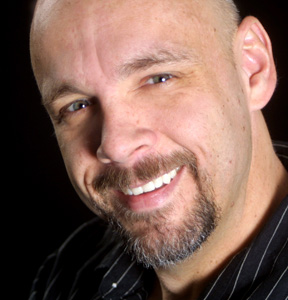Editorial
Front Page - Friday, February 11, 2011
The Critic's Corner
"Rabbit Hole"
David Laprad

If a tree falls in a forest, and no one is there to hear it, does it make a sound? “Rabbit Hole,” a newly released independent movie, asks a similar question: If a child dies, and no one talks about it, did it ever happen?
The characters in “Rabbit Hole” go to great lengths to avoid mentioning the death of Becca and Howie’s young son in an accident. Becca’s sister hides her pregnancy, the neighbors invite the couple to dinner because “enough time has passed,” and someone suggests group therapy without saying why Becca and Howie might need it.
When a friend at a gym gathers the courage to ask Howie if he and Becca have considered becoming parents again, he says, “Have you thought about having another?” Another what? Round of squash? These people mean well, but they’re afraid to say the word “child.”
More movies need writing like this. The script by David Lindsay-Abaire allows viewers to figure out things on their own. No one walks into a room and says, “Gosh, Howie and Becca, I hate that a car hit and killed your kid as he chased his dog into the street. Is there anything I can do?” Howie and Becca are struggling for answers, and in forcing audience members to ask questions, Lindsay-Abaire draws viewers as close as he can to what his two main characters are experiencing.
However, as the pieces of the puzzle in “Rabbit Hole” start snapping into place, there’s still some distance between viewers and the events taking place on the screen, as it’s impossible to understand what it’s like to bury a son or daughter without experiencing it firsthand. That space is similar to the gulf that exists between Howie and Becca, who are still living together, but have grown worlds apart.
Because of their separation, each of them ends up dealing with the death of their son in isolation. Director John Cameron Mitchell shows Becca alone, taking her son’s drawings off the refrigerator: at night, Howie stays downstairs and watches a cell phone video of his boy. When Becca sees this, she quietly goes back upstairs.
Are they angry at each other? Does Howie blame Becca because she was with their child when the accident happened? Do thoughts of moving on make them feel guilty? Cameron and Lindsay-Abaire let viewers think for themselves.
The physical distance between Howie and Becca is similar to the emotional disparity between them: he’s made progress, while she’s still holding on to her grief. When Howie makes a sexual advance and Becca shoots him down, he fires back, “It’s been eight months!” It’s as though he’s saying, “Why are you still at the funeral?”
Like errant celestial bodies, Howie and Becca go spinning in different directions. She stalks the teenage boy who struck their child, and eventually forms a bond with him; he befriends another woman and is tempted to go one step too far. Cameron and Lindsay-Abaire never allow the movie to lose focus, though.
At its core, “Rabbit Hole” is not about how people deal with the loss of a child; it’s about how relationships mend in the wake of tragedy and heartbreak. Before Becca can resolve her issues with Howie, she must patch things up with her mother, with whom she has a strained relationship, and Howie must remember he loves his wife.
Cameron and Lindsay-Abaire deal honestly with their subject matter. There are no grand speeches, no big moments where a character declares he or she feeling better, and no forced elation at the end. I imagine parents who lose a child eventually accept that they will always miss him or her and then slowly embrace healing.
The acting in “Rabbit Hole” is excellent, as one would expect, given the cast. Nicole Kidman gives Becca a hard outer shell, but one that’s cracking. When Becca finally lets go, Kidman’s unreserved performance produces a deeply affecting moment.
Aaron Eckhart does some interesting things with Howie. In one scene, Howie whines as he yells at Becca over an alleged offense, as though he’s overplaying his anger to make his wife feel badly. I didn’t realize what Eckhart was doing in that scene until later, when Howie has a more justifiable reason for being mad, and his outburst is less shrill.
“Rabbit Hole” is a small movie that deals with a difficult topic in an insightful and penetrating manner. It also delivers a satisfying payoff. If you see it, pay close attention to the final shot. Cameron ends the movie the same way he started it: by showing something instead of having people talk about it. And what he shows brought tears to my eyes.
Rated PG-13 for mature thematic material. Four stars out of four.
Email David Laprad at dlaprad@hamiltoncountyherald.com.
|
|